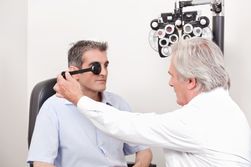
Semi-trucks can weigh up to 80,000 pounds and often carry sensitive material. It takes a skilled driver to handle them. To ensure you’re up to the task, the Department of Transportation (DOT) gives you a physical examination. Every truck driver must pass this exam to obtain and maintain a CDL license. Preparing yourself ahead of time will get you out of the doctor’s office and on the road faster.
Why Is It Important for Truck Drivers?
 The DOT exam exists to help and support truckers while also protecting other drivers on the road. The exam ensures all truckers are physically, mentally, and emotionally capable of doing the job.
The DOT exam exists to help and support truckers while also protecting other drivers on the road. The exam ensures all truckers are physically, mentally, and emotionally capable of doing the job.
Truck drivers spend a maximum of 11 hours a day driving. Unless they have a driving partner, they’re usually alone. They must cover vast distances in a short amount of time and through all kinds of traffic, terrain, and weather to provide for their families. This doesn’t leave much time for regular check-ups with a doctor. These mandatory exams help you look after your health.
Driving for long distances on tight schedules, truck drivers don’t always have time to diet or exercise. However, staying healthy as a truck driver is easier than ever before. Some apps can help truckers fit in quick workouts and make dietary suggestions while they’re on the road. This will help in the long run when you go for your next exam.
How Should You Prepare for a DOT Physical?
The DOT exam for truck drivers is comprehensive but noninvasive, and usually only takes 30 minutes to an hour. Doctors, physician’s assistants, or nurse practitioners can perform the exam. You may also use your primary care physician if you prefer. When you’re on the road, you may not have time to schedule an appointment. If you can’t make it to your primary care physician, local urgent care facilities can perform the exam.
 On the day of your exam, bring your medical history, including a list of your prescriptions and their dosages. If you wear glasses, bring them along with a copy of your prescription. If you’re wearing contacts, tell your examiner before the test begins. If you use a hearing aid, bring that with you as well. Most importantly, you must disclose any known medical conditions before beginning the exam. Failing to do so can disqualify you from getting your DOT medical card.
On the day of your exam, bring your medical history, including a list of your prescriptions and their dosages. If you wear glasses, bring them along with a copy of your prescription. If you’re wearing contacts, tell your examiner before the test begins. If you use a hearing aid, bring that with you as well. Most importantly, you must disclose any known medical conditions before beginning the exam. Failing to do so can disqualify you from getting your DOT medical card.
Once you pass the exam, you’ll be given a DOT medical certificate and medical card. You should always keep the card with you. After the exam, Ohio truck drivers need to self-certify through the state’s BMV. You’ll need to submit copies of your medical certificate and card. Include a cover page that lists your name, address, and phone number.
What Does It Test?
Vision
To pass the vision test, you must have 20/40 vision in at least one eye. This can be with the help of glasses, contact lenses, or corrective laser eye surgery. However, if you’re using contact lenses for monocular vision, it’s likely a disqualifying factor.
Hearing
 To pass the hearing test, potential truck drivers must be able to hear a “forced whisper” within five feet. Both ears will be tested separately. The examiner will speak random phrases or numbers while one ear is covered.
To pass the hearing test, potential truck drivers must be able to hear a “forced whisper” within five feet. Both ears will be tested separately. The examiner will speak random phrases or numbers while one ear is covered.
If you fail the forced whisper test, you must pass an audiometer test. The device produces various sounds at different volumes. To pass, your better ear must not have a hearing loss greater than 40 decibels.
Drivers with hearing aids can use them on the test, though some audiometers can’t be used with hearing aids. The examiner will refer you out for a proper audiometric test.
Neurology & Mental Health
Examiners will also test your neurological functions. They’ll check your overall coordination and reflexes to prove you can react to sudden changes on the road. Your medical history will be searched for brain injuries or disorders, including stroke, seizures, and epilepsy. They’ll also check for psychiatric disorders, including bipolar disorder, obsessive-compulsive disorder, antisocial personality disorder, and schizophrenia.
Testing positive for these conditions may be a disqualifying factor. The Federal Motor Carrier Safety Administration (FMCSA) believes that drivers with these disorders are at a higher risk of accidents. While the driver’s condition might be regulated with medication, they can also have side effects that dull their reaction time.
Overall Wellness
While truck drivers have a sedentary job, your health is a concern to the DOT. Their examiners will check for hernias or spinal deformities. Cardiovascular disease is the leading cause of illness among truck drivers. To reduce the number of cases, the DOT will check for several conditions, including heart arrhythmia, heart disease, and hypertension. They’ll also check your records for any history of heart attacks. Truck drivers can reduce their risk of cardiovascular problems through exercise and dieting.
Finally, the DOT also requires a urine test for habit-forming drugs. This includes amphetamines, cocaine, opiates, PCP, marijuana, and LSD.
However, there are exemptions to the test. Diabetes, vision and hearing impairments or physical limitations aren’t automatically disqualifying.
What Are the Exemptions?
You must meet several criteria for a diabetes exemption. An endocrinologist must examine you and support your application. You must be on insulin for at least 30 days. You can only have had one severe hypoglycemic incident in the last five years. You can’t have associated medical conditions such as cardiac autonomic neuropathy. Changes to your blood sugar shouldn’t affect your driving. You must also show that your diabetes is stable and you can manage it on your own.
 Since diabetes can also affect your eyesight, you must meet vision criteria as well. Your field of vision needs to be greater than 70 degrees for each eye, and your acuity must rate 20/40 or better in each eye. Any related vision conditions like diabetic retinopathy, macular edema, and glaucoma must be under control. You must show no signs of continued vision loss.
Since diabetes can also affect your eyesight, you must meet vision criteria as well. Your field of vision needs to be greater than 70 degrees for each eye, and your acuity must rate 20/40 or better in each eye. Any related vision conditions like diabetic retinopathy, macular edema, and glaucoma must be under control. You must show no signs of continued vision loss.
Those with visual impairments unrelated to diabetes can be given an exemption for two years. At least one eye must meet FMCSA vision standards, and your vision needs to be otherwise stable. You should also have a safe driving record with no suspensions. Monocular vision is usually a disqualifying factor. However, if you pass the other physical categories, you might pass the DOT physical with a Federal Vision Exemption Certificate.
Exemptions for hearing loss are given by the FMSCA on a case-by-case basis. Drivers with hearing aids must always wear them while driving and carry a spare battery or charger for them.
Potential truck drivers with physical impairments or missing limbs can apply for exemptions. For the exemption to pass, you’ll complete a Skill Performance Evaluation certificate program. You must complete several physical activities, including driving your rig safely. Prosthetics can be used during the evaluation and on the road. After passing the evaluation, your certificate needs to be renewed every two years.
How Often Do You Need a DOT Physical Exam?
Most truck drivers update their certificate every two years. However, certain medical conditions, like diabetes or high or low blood pressure, might affect your ability to drive. You’ll still pass the exam but will have to update their certificate every year. If you have a treatable condition, the DOT will offer a three-month or six-month certificate. As your condition improves, they’ll increase the certificate to one or two years. The Ohio BMV will notify you 60 days before your certificate expires. When you pass your DOT physical, remember to forward a copy of the certificate to your employer and the BMV.
Passing a DOT physical is one of several steps students take before becoming truck drivers. The first step begins at Hamrick School. Their accredited driving school has served the people of Medina, OH, for over 40 years. Their CDL program provides students with classroom instruction and road experience. For more information on their admissions procedure, visit their website. For class schedules, reach out to them at (330) 239-2229.
- OH Reg. #2057
- ODPS License #1439-2369
About the Business
Have a question? Ask the experts!
Send your question

